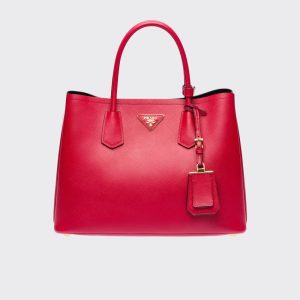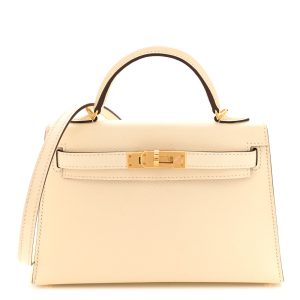The Clutch Conundrum: A Deep Look into Luxury Replicas and Sustainable Alternatives
In the kaleidoscopic world of luxury fashion, two seemingly opposing trends are emerging with vibrant prominence - the legacy of ostentatious originals and the ascension of sustainable, responsible alternatives. Navigating these currents is not only a quest for style but also a statement of values. Here, we explore the contrasting paths of two clutch brands - the iconic Saint Laurent and the emergent ethical luxury of Be Roma - as they mirror the shifts in consumer appetite, industry innovation, and the timeless dexterity of style.
The Allure, The Replica, The Debate
Replica luxury handbags have sparked myriad conversations, with devotees and detractors voicing their arguments amid digital platforms and street corners. This alternative market is as diverse as it is controversial, leaving stains of copyright infringement and labor malpractice in its wake. Many, however, see it as an access point to the unattainable, donning the quintessence of luxury without the crippling price tag.
Saint Laurent's Timeless Clutch
The Saint Laurent clutch is a paragon of minimalistic elegance. Its slender form, embellished with the house's legacy 'YSL' monogram, is coveted by the fashion-forward and the classicist alike. The story behind this French icon is steeped in heritage and haute couture savoir-faire, a narrative flaunted as adamantly as the clutch itself.
Be Roma's Ethical Luxe
Contrastingly, Be Roma - a beacon of the 'sustainable luxury' movement - champions a different saga. With a committed pledge to the environment and ethical labor, it forges its identity not just in the sheen of its products, but in the stories of its production. The brand's take on the classic clutch is a vibrant harmony of recycled materials, artisanal craftsmanship, and a design ethos that sings ode to timeless elegance and planet-preserving practices.
Crafting Conscious Clutches
Assessing the landscape of these two luxury brands requires a dissection of what, beyond the aesthetic, draws consumers to them.
Saint Laurent vs. Be Roma: Materials and Methods
Saint Laurent's dedication to premium materials and traditional techniques endows its clutches with a quality that is irrefutable. Be Roma counters this with a synthesis of creativity and conscience, employing a variety of upcycled and biodegradable fabrics. The juxtaposition of their methods is a demonstration not just in the art of accessorizing, but in the art of ethical creation.
The Price of Luxury
Luxury, by default, is exclusive, and often this exclusivity extends to the price point. The Saint Laurent clutch, with its exorbitant cost, epitomizes this ideal. Be Roma challenges this notion by offering an alternative that reconciles luxury with affordability and social responsibility - a premise that is increasingly resonating with modern consumers who seek to align their purchases with their ethical compass.
When Leather Meets Leaves: A Consumer's Quandary
The decision to purchase a luxury replica or a sustainable alternative is a deeply personal one that intertwines with broader ethical considerations.
Consumer Impact
Every purchase is a vote cast in the marketplace, shaping the industry's trajectory. The prevalence of luxury replicas has not gone unnoticed, and consumers are beginning to question the narrative of disposability that has long dominated the fashion industry. Conversely, the rise of brands like Be Roma signals a shift towards a consumer base that prizes longevity, authenticity, and social consciousness.
Educated Shopping
In a shopping landscape rife with options, education is key. Consumers must arm themselves with knowledge - of the brands they support, the materials they favor, and the practices they condone. This informed approach ensures that each purchase is made with the full weight of its implications in mind.
Style with Substance: How to Make Your Fashion Choices Count
For those in pursuit of a stylish identity that champions sustainability, several actions can weave a tapestry of conscious consumerism.
Curating a Sustainable Wardrobe
Fashion is as much about the curation as it is about the creation. A conscious consumer curates their wardrobe not just with aesthetics in mind, but with a consideration of the environmental and ethical impact of their choices.
The Power of Pre-Loved
Pre-loved luxury items offer an avenue to enjoy the opulence of a brand while minimizing one's carbon footprint. It's a statement of style that values heritage without compromising on values.
Elevate with Ethical Alternatives
Exploring the niche of ethical luxury can lead to the discovery of brands that offer innovative, sophisticated designs without the baggage of conventional luxury. These choices not only contribute to a more sustainable industry but also reward the consumer with a unique, thoughtful piece that transcends mere trendiness.
The Future Fray
The narrative of luxury fashion is eternally evolving, and the voices that propel this dialogue are as diverse as the clutches that grace the shelves.
Seamless Integration of Ethics and Aesthetics
The future of luxury promises an interwoven tapestry of design excellence and ethical operation. This union is not just a possibility - it's an inevitability that consumers and brands are co-authoring in a shared quest for a stylish, sustainable world.
Redesigning the Replica Market
The replica market stands at a crossroads, with the opportunity to redefine itself not as the antithesis of luxury but as a proponent of inclusive, ethical choices. Brands that prioritize transparency and fair practices can carve a niche that doesn't compromise on brand experience.
The New Definitions of Luxury
Luxury's contemporary definition encompasses more than the mere trinity of quality, exclusivity, and heritage. Today, luxury is about the story, the substance, and the soul behind the products that adorn our lives. Brands that embrace these aspects stand poised to lead an industry that is not just opulent, but also ornately ethical.
In the final analysis, luxury's true essence lies not in the leather of the clutch, but in the fabric of the industry itself - a resilient, regenerative tapestry that consumers and creators weave, one stitch of sustainability at a time.



Comments
Post a Comment